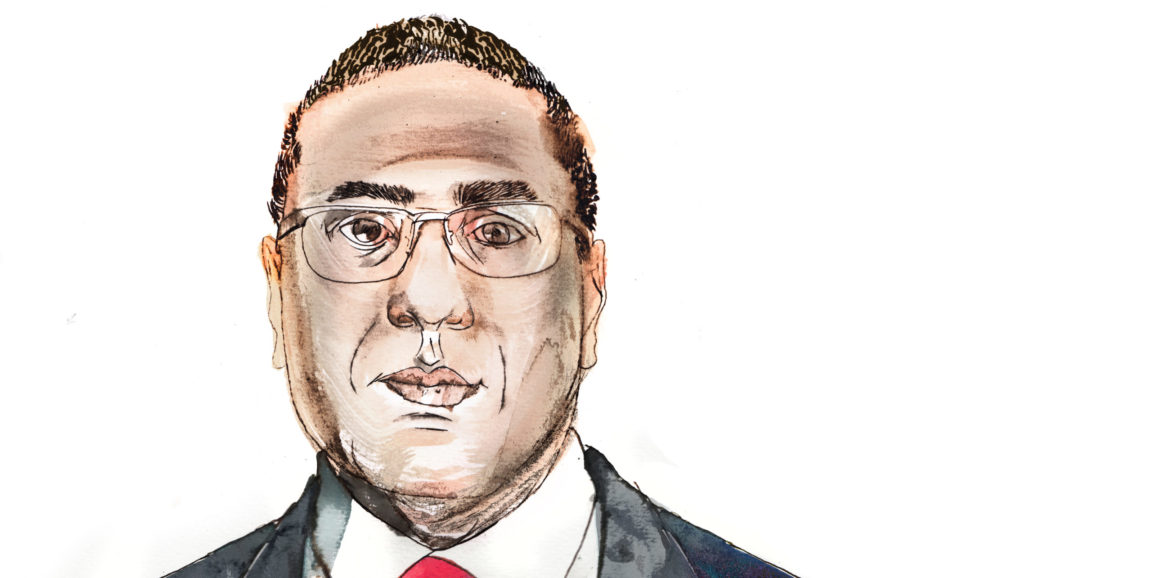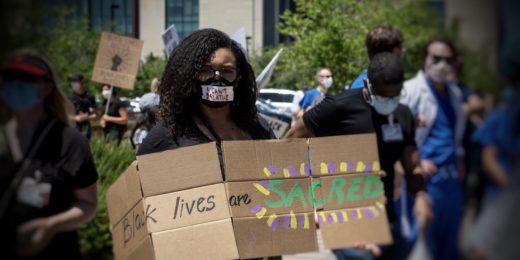In a letter written shortly after Minneapolis police killed George Floyd, a Black neurosurgeon with strong Stanford ties shared his thoughts about anti-Black racism at Stanford and in the world beyond.
In the letter, published in Stanford Medicine magazine, he wrote that Floyd's death reaffirmed what he had long held to be true: He lives in a racist country.
"We are a nation where a majority of white citizens are perfectly comfortable remaining uninvolved, allowing the worst things to happen to citizens of color," Samuel Cheshier, MD, PhD, wrote.
Cheshier directs pediatric surgical neuro-oncology and conducts cancer research at the University of Utah School of Medicine. Before his recent move to Utah, he was for decades an integral part of the Stanford Medicine community -- as an MD/PhD student, as a neurological surgery resident and as a neurosurgery faculty member.
And while the killing profoundly disturbed Cheshier, he said the aftermath has offered hope that change could be possible.
"One of the most important things that happened after Floyd is that white people admitted to themselves that, 'I guess racism does happen.' Not just police brutality, but the whole policing institution is set against people of color. People's minds are open to that," he said.
A call for anti-racist action by whites
Cheshier wrote the letter to friend and colleague Irv Weissman, MD, director of Stanford's Institute for Stem Cell Biology and Regenerative Medicine, who asked for his perspective in the wake of the killing. In it, Cheshier urged white people to become anti-racist.
"We are asking you to turn around, look at the knee on a human being's neck and please push it off. You can help," wrote Cheshier.
His letter included descriptions of some of his experiences of discrimination, such as when medical school classmates told him he was admitted only because of his race, patients' parents asked to switch neurosurgeons for no apparent reason, and nurses asked him to take away recovering patients' food trays, mistaking him for a food services employee.
But he also told of his many positive experiences at Stanford:
"None of those negative experiences came close to the positive experiences I have had with the students, faculty and staff at Stanford. I can't tell you how many times a person at Stanford gave me a chance and took a chance on me. I can't tell you how many times at Stanford I heard, 'Well, all things being equal, we are going to take the women and persons of color.' I can't tell you how many times Stanford offered me opportunities to help others just like me."
Cheshier said he has been encouraged by responses to his letter, noting that few were negative and plenty were positive. He said writing the letter has made him feel more empowered to bring racist incidents to the attention of others. "I'm more comfortable calling it out because I think people are more accepting," he said.
A recent encounter at a patient's bedside is a case in point:
"I am rounding with my white fellow. I'm the one who just took the brain tumor out of this kid's head. But the parents talk only to my fellow. They don't even look at me," he said. "In the past, after an incident like that, I wouldn't have said anything. But this time I said to my fellow: 'Did you see that? They didn't even look at me.' I think two or three years ago, my fellow would have said, 'No.' But this time, my fellow saw it as clearly as I did."
Illustration of Samuel Cheshier by Riccardo Vecchio






